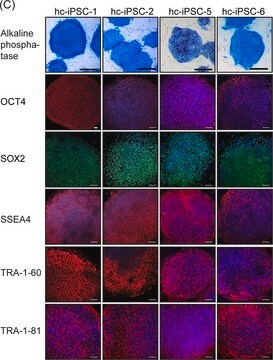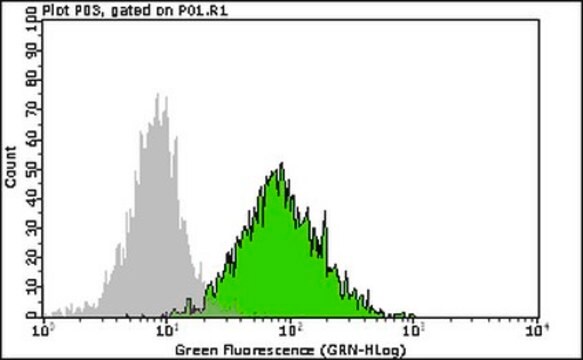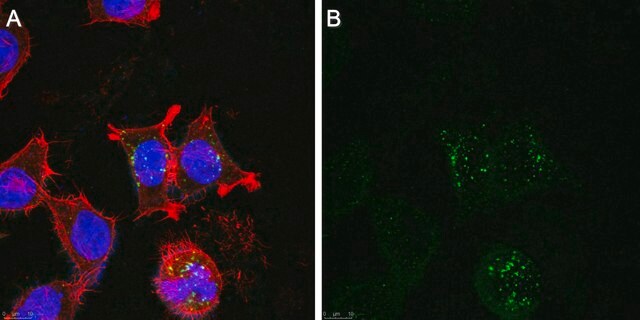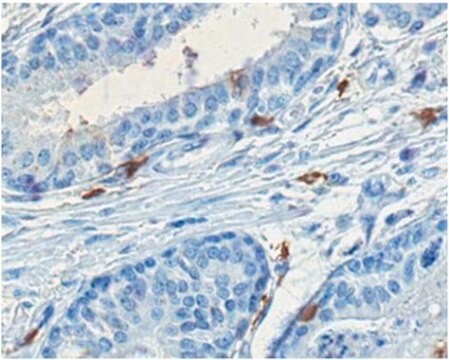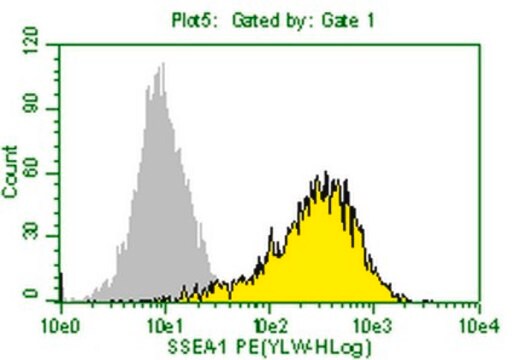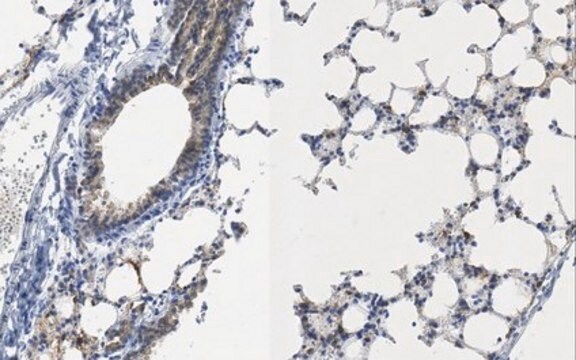MAB4303-I
Anti-Stage-Specific Embryonic Antigen-3 Antibody, clone MC-631
clone MC-631, from rat
Sinônimo(s):
Stage-Specific Embryonic Antigen-3
About This Item
Produtos recomendados
fonte biológica
rat
Nível de qualidade
forma do anticorpo
purified antibody
tipo de produto de anticorpo
primary antibodies
clone
MC-631, monoclonal
reatividade de espécies
human
reatividade da espécie (prevista por homologia)
mouse
técnica(s)
flow cytometry: suitable
immunocytochemistry: suitable
immunofluorescence: suitable
immunohistochemistry: suitable
Isotipo
IgMκ
Condições de expedição
wet ice
modificação pós-traducional do alvo
unmodified
Descrição geral
Especificidade
Imunogênio
Aplicação
Immunocytochemistry Analysis: A representative lot detected SSEA-3 immunoreactivity among T
cell-derived iPSCs (TiPSCs) by fluorescent immunocytochemistry (Kishino, Y., et al. (2014). PLoS One. 9(5):e97397).
Immunocytochemistry Analysis: A representative lot detected the presence of SSEA-3-positive cancer stem cells (CSCs) among cultured HCT116 colorectal cancer (CRC) cells by fluorescent immunocytochemistry (Suzuki, Y., et al. (2013). Int. J. Oncol. 42(1):161-167).
Immunocytochemistry Analysis: A representative lot detected SSEA-3 immunoreactivity among induced pluripotent stem (iPS) cells from human molars-derived mesenchymal stromal cells (MSCs) by fluorescent immunocytochemistry (Oda, Y., et al. (2010). J. Biol. Chem. 285(38):29270-29278).
Flow Cytometry Analysis: A representative lot detected the presence of SSEA-3-positive cancer stem cells (CSCs) in five cultured colorectal cancer (CRC) cell lines, HCT116, Caco-2, DLD-1, HT-29, and SW480 (Suzuki, Y., et al. (2013). Int. J. Oncol. 42(1):161-167).
Immunofluorescence Analysis: A representative lot detected a mall number of SSEA-3-positive stromal cells in normal colorectal epithelia and SSEA-3-positive cancers in colorectal adenocarcinomas by fluorescent immunohistochemistry using frozen tissue sections (Suzuki, Y., et al. (2013). Int. J. Oncol. 42(1):161-167).
Stem Cell Research
Cell Cycle, DNA Replication & Repair
Qualidade
Flow Cytometry Analysis: 1.0 µg of this antibody detected Stage-Specific Embryonic Antigen-3 in H9 cells.
Ligação
forma física
Armazenamento e estabilidade
Outras notas
Exoneração de responsabilidade
Não está encontrando o produto certo?
Experimente o nosso Ferramenta de seleção de produtos.
Código de classe de armazenamento
10 - Combustible liquids
Classe de risco de água (WGK)
WGK 2
Ponto de fulgor (°F)
Not applicable
Ponto de fulgor (°C)
Not applicable
Certificados de análise (COA)
Busque Certificados de análise (COA) digitando o Número do Lote do produto. Os números de lote e remessa podem ser encontrados no rótulo de um produto após a palavra “Lot” ou “Batch”.
Já possui este produto?
Encontre a documentação dos produtos que você adquiriu recentemente na biblioteca de documentos.
Nossa equipe de cientistas tem experiência em todas as áreas de pesquisa, incluindo Life Sciences, ciência de materiais, síntese química, cromatografia, química analítica e muitas outras.
Entre em contato com a assistência técnica